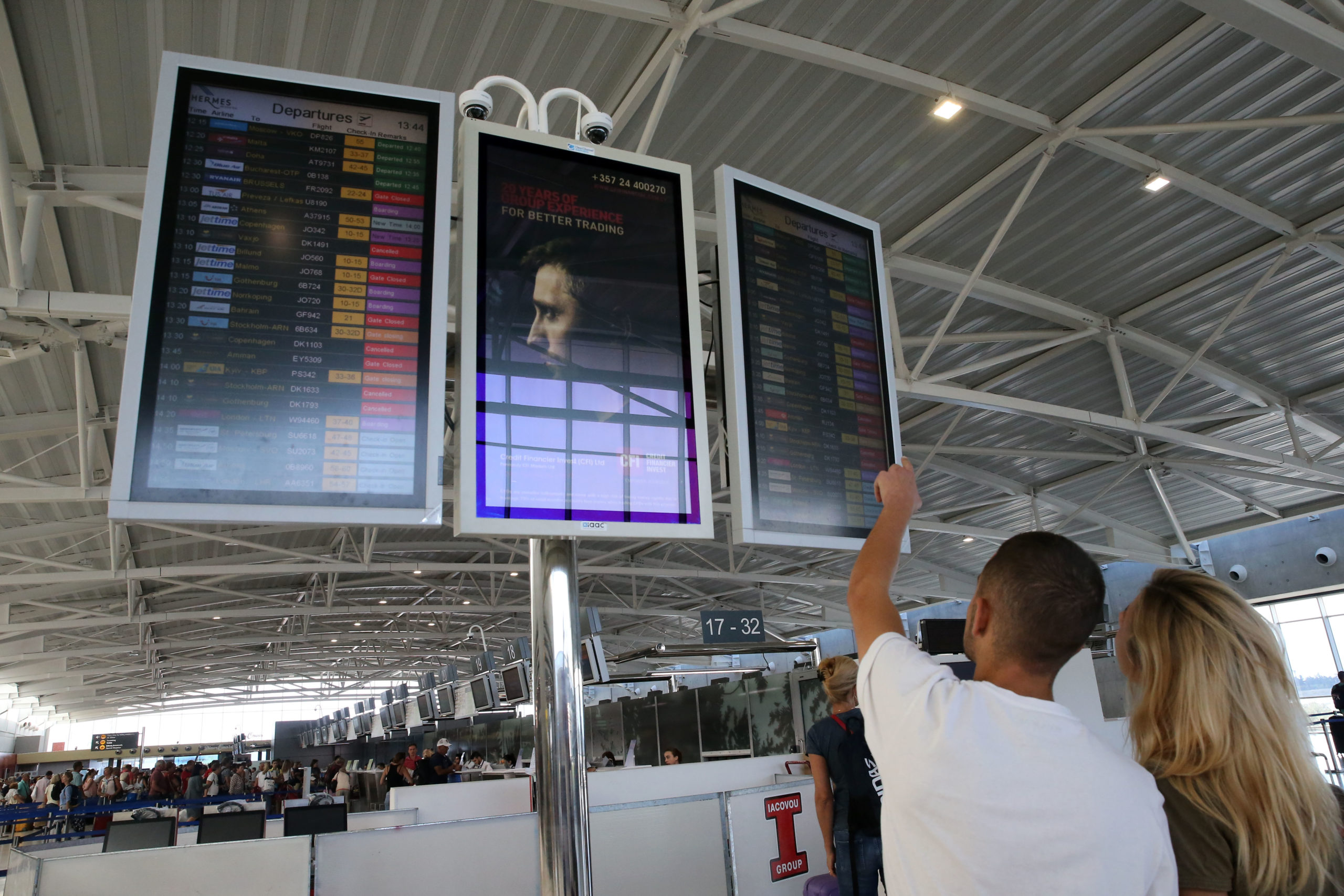Cyprus has reviewed its colour-coded COVID-19 safe travel risk assessment scheme upgrading Ireland from the red category to orange, while demoting Norway and Denmark to red.
There is no change in green, which currently hosts five countries – Iceland, Australia, New Zealand, Singapore, and Saudi Arabia – while the quarantine requirement for Britain may be lifted from April 1.
The new country risk assessment, announced on Monday morning, comes into effect from Thursday, March 25.
Earlier in the month, Cyprus introduced a new four-tier traffic light system for visitors from 56 countries allowed entry without quarantine, although a rise in coronavirus cases internationally has led to restrictions introduced for March.
The tiers include EU member states and third countries such as Britain, Russia, and Israel, the island’s main tourism feeder markets. Countries are categorised as Green, Orange, Red and an additional Grey class for arrivals requiring special permission.
The Health Ministry said the epidemiological assessment was reclassified based on the European Centre for Disease Control’s (ECDC) upgraded risk assessment travel list.
Despite country of origin, all passengers must apply for the CyprusFlightPass within 24 hours before the departure of their flight.
Until March 31, low-risk Green category arrivals will be asked to undergo a PCR laboratory test upon arrival in Cyprus, the cost of which will be covered by the Republic. From April 1, there will be no restrictions on arrivals from these countries.
GREEN
Under the new COVID assessment scheme, low-risk countries currently classified in the Green category are Iceland, Australia, New Zealand, Singapore, and Saudi Arabia.
Passengers arriving from these countries do not require to self-isolate or carry a negative coronavirus test.
ORANGE
Orange countries are those of higher risk than green.
Passengers must have undergone a PCR laboratory test within 72 hours before departure and have a certificate proving they tested negative for the virus.
EU member states: 1) Portugal, 2) Ireland.
Third countries: 1) China (including Hong Kong and Macau), 2) South Korea, 3) Thailand.
Passengers from these countries can undergo the coronavirus test upon arrival at their own expense and remain in self-isolation pending the results if they are Cypriot citizens or residents.
RED
This category includes countries of higher risk than orange.
Passengers coming from red category countries are required: a) to have proof of a negative PCR test carried out under 72 hours before departure, and b) undergo a laboratory test upon arrival in the Republic of Cyprus. Cost of the test is charged to the individual.
EU member states: 1) Austria, 2) Belgium, 3) Bulgaria, 4) France, 5) Croatia, 6) Luxembourg, 7) Romania, 8) Spain, 9) Italy, 10) Greece, 11) Malta , 12) Netherlands, 13) Hungary, 14) Poland, 15) Finland, 16) Slovakia, 17) Slovenia, 18) Czech Republic, 19) Estonia, 20) Latvia, 21) Lithuania, 22) Sweden, 23) Germany, 24 ) Denmark.
Small states: 1) Andorra, 2) Monaco, 3) Vatican City, 4) San Marino.
Members of the Schengen Area: 1) Switzerland, 2) Liechtenstein, 3) Norway.
GREY
Arrivals are allowed entry after acquiring special permission, and only if they are Cypriot citizens or entitled to enter.
Passengers must undergo a coronavirus test under 72 hours before their trip and have a certificate they tested negative for Covid-19.
Grey category passengers must remain in self-isolation for 14 days or 10 if they choose to carry out another coronavirus PCR test with a negative result.
The Grey category: United Kingdom, Israel, Russia, United Arab Emirates, Ukraine, Jordan, Lebanon, Egypt, Belarus, Rwanda.
UNITED KINGDOM
The Health Ministry affirmed that up until March 31 (23:59), UK arrivals must undergo a COVID-19 test upon arrival at Larnaca or Paphos Airports, and they are transported to designated hotels – free of charge – for mandatory 7-day isolation.
After that, they undergo another PCR test, and if negative, they will remain in self-isolation for another three days.
In a communication with the health ministry, officials confirmed that plans aim to lift the quarantine requirement for UK travellers as of April 1.
The Transport Ministry introduced the practice on February 26 after discovering a more potent strain of the virus identified in Britain.










